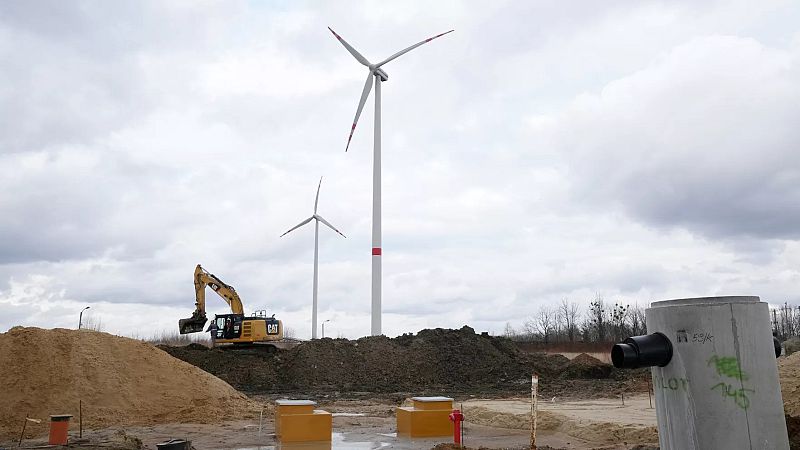
In June 2025, all renewable energy sources (RES) in Poland produced 44.1 per cent of electricity, while coal and lignite plants produced 43.7 per cent, according to preliminary estimates from the think tank Energy Forum.
This would mean that, for the first time ever, renewables provided more energy than coal.
In the entire second quarter, coal's share in Poland's energy mix was 45.2 per cent, so it was the first quarter in the history of the Polish energy sector when less than half of the energy produced came from this source.
Still, the majority of energy in Poland comes from fossil fuels, as natural gas-fired power plants are responsible for the vast majority of the remaining several per cent of the energy mix.
This situation is shifting too, however. Figures from the Instrat Foundation show that on 29 June the share of emission-free sources was 49.5 per cent.
RES in Poland: Favourable weather, unfavourable regulations
"This is mainly due to generation from photovoltaic [solar] sources, whose installed capacity increased by 24 per cent compared to the previous year, reaching 23 GW," explains Dr Maria Niewierko from the Energy Forum (Forum Energii). Just five years ago there were only 2 GW of PV installations in Poland.
"In addition, June was exceptionally windy, resulting in double the wind power generation compared to a year ago."
The beginning of July brought a slight decrease in the share of RES in power generation, to approximately 33-34 per cent. Industry representatives caution, however, that more significant decreases are to be expected in winter as a result of significantly lower efficiency of solar installations.
A key challenge for Poland is the removal of barriers delaying the energy transition.
"The development of onshore wind energy, which was virtually completely halted by the government in 2016 and only two years ago started to liberalise these regulations, is still very limited," Dr Niewierko adds.
"The bill that is supposed to unlock the development of this cheapest technology for Poland, after passing through the Senate, is awaiting the signature of the president, who is showing less favour for this solution. The project for the first nuclear power plant is also being delayed, with the original plan being to launch the unit in 2033, but now there is talk of 2036."
"The biggest challenge remains the outdated infrastructure. Transmission grids need to be upgraded and the lack of sufficient energy storage prevents full use of peak generation," says Sebastian Skolimowski of PAD RES, a RES power plant design company.
"In order to fully unlock the potential of RES, investments in grid expansion and digitalisation, the construction of storage facilities, and stable regulations favouring the development of wind farms are required."
Poland is one of the world's most polluting economies
Although the share of fossil fuels in the production of electricity in Poland is falling, representatives of the Energy Forum point out that this is not the case for the entire economy.
Over the past 20 years, since Poland's accession to the EU, Poland has seen two opposing trends - coal consumption has fallen by 38 per cent, while oil consumption has increased by 41 per cent and natural gas by 43 per cent.
"Despite being completely independent of raw materials from Russia, the fossil fuel import bill is still gigantic. In 2024, Poland paid as much as PLN 112 billion for them," says Kacper Kwidziński, analyst at Energy Forum.
"At the same time, Poland's overall dependence on imports of energy carriers is growing - in a decade it has increased from 29 per cent to 45 per cent. The greatest dependence for years has been on crude oil, almost 97 per cent of which comes from abroad," he adds.
"This shows that despite the partial progress of the energy transition, the Polish economy still relies heavily on imported fuels and we are paying a high price for this dependence."
The report Energy Transition of Poland 2025 shows that Poland still ranks among the world's most emitting economies both per unit of GDP and energy consumption.
Only Kuwait, South Africa, Kazakhstan and China are worse than Poland in terms of emissions.







